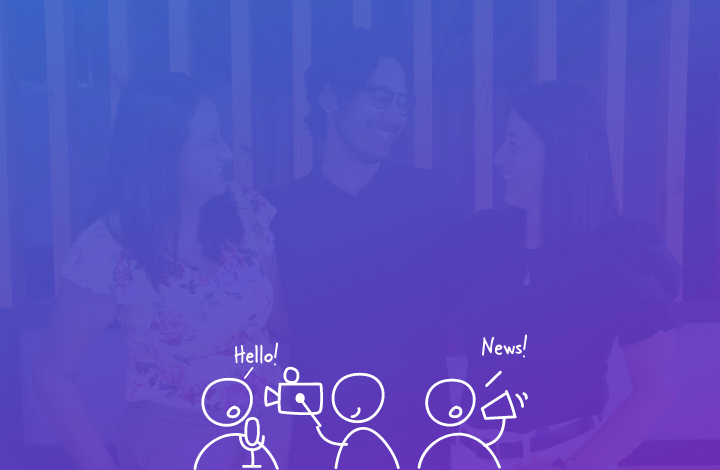July 31, 2024

Software Development Outsourcing
Unlocking the Power of Language: Applications of Natural Language Processing

Natural language processing (NLP) is a branch of artificial intelligence that empowers computers to understand, interpret, and generate human language. This technology has rapidly evolved, transforming industries and our daily lives. Let’s delve into the diverse applications of natural language processing (NLP) and explore how it’s reshaping the world.
Applications of Natural Language Processing in Customer Service
One of the most visible applications of natural language processing is in customer service. Chatbots and virtual assistants, powered by NLP, are becoming increasingly sophisticated. These intelligent systems can handle a wide range of customer inquiries, from answering frequently asked questions to resolving complex issues. By understanding and responding to customer queries in natural language, businesses can enhance customer satisfaction, reduce response times, and free up human agents to focus on more complex tasks.
Sentiment analysis, another NLP application, empowers businesses to gauge customer sentiment from social media, reviews, and survey responses. By analyzing textual data, businesses can identify trends, address customer concerns promptly, and make data-driven decisions to improve products and services.
Applications of Natural Language Processing in Marketing
NLP is revolutionizing the marketing landscape by providing valuable insights into customer behavior and preferences. By analyzing customer reviews, social media posts, and other textual data, marketers can identify trends, understand customer needs, and tailor marketing campaigns accordingly. NLP-powered tools can also help with tasks such as content creation, ad targeting, and lead generation.
For instance, NLP algorithms can analyze vast amounts of text data to identify relevant keywords and phrases, helping marketers create engaging and informative content. Additionally, sentiment analysis can be used to measure the effectiveness of marketing campaigns and identify areas for improvement.
Applications of Natural Language Processing in Healthcare
The healthcare industry is embracing applications of natural language processing to improve patient care, streamline operations, and accelerate drug discovery. NLP-powered systems can analyze medical records, research papers, and clinical trial data to extract valuable insights. This information can be used to identify potential drug targets, develop personalized treatment plans, and predict disease outbreaks.
Moreover, NLP can enhance patient communication by enabling doctors to dictate notes and generate reports more efficiently. Virtual health assistants powered by NLP can provide patients with information, answer questions, and even offer basic medical advice.
Applications of Natural Language Processing in Finance
The financial sector is leveraging applications of natural language processing (NLP) to manage risk, detect fraud, and make informed investment decisions. NLP algorithms can analyze news articles, financial reports, and social media data to identify trends and potential risks. Sentiment analysis can be used to gauge market sentiment and make investment decisions.
Additionally, NLP-powered chatbots can provide financial advice, answer customer inquiries, and assist with tasks such as account management. Fraud detection systems powered by NLP can analyze transaction data and identify suspicious patterns, protecting financial institutions from losses.
Applications of Natural Language Processing in Legal
The legal industry is also benefiting from applications of natural language processing. NLP can be used to analyze legal documents, such as contracts and case law, to extract relevant information and identify potential risks. This can help lawyers to work more efficiently and reduce the risk of errors.
Moreover, NLP-powered tools can assist with tasks such as document review, discovery, and e-discovery. By automating these processes, law firms can save time and reduce costs.
Analysis of Applications of Natural Language Processing
The applications of natural language processing are vast and continue to expand. According to a report by Grand View Research, the global NLP market size is expected to reach USD 42.04 billion by 2028, growing at a compound annual growth rate (CAGR) of 19.7% from 2023 to 2028.
Several factors are driving the growth of the NLP market, including the increasing volume of unstructured data, advancements in machine learning and artificial intelligence, and the growing demand for automation.
While the potential benefits of NLP are significant, there are also challenges to consider. These include data privacy concerns, the need for high-quality data, and the development of robust NLP models.
Conclusion
Applications of natural language processing are transforming industries and our daily lives. From customer service and marketing to healthcare, finance, and law, NLP is empowering businesses to make better decisions, improve efficiency, and enhance customer experiences.
As NLP technology continues to advance, we can expect to see even more innovative and impactful applications emerge. By understanding the potential of NLP and addressing the associated challenges, organizations can harness the power of language to drive growth and success.
Applications of Natural Language Processing in Education
The realm of education is undergoing a digital transformation, and applications of natural language processing (NLP) are at the forefront of this revolution. By understanding and interpreting human language, NLP is enhancing learning experiences, improving educational outcomes, and revolutionizing the way students and teachers interact with information.
Personalized Learning with NLP
One of the most promising applications of natural language processing (NLP) in education is personalized learning. By analyzing students’ written work, NLP algorithms can identify strengths, weaknesses, and learning styles. This information can be used to create tailored learning paths for each student, ensuring that they receive the appropriate level of challenge and support.
Intelligent tutoring systems (ITS) powered by NLP can provide students with real-time feedback and guidance. These systems can adapt to a student’s learning pace and style, offering explanations, examples, and practice exercises as needed. NLP also enables the development of adaptive assessments that can adjust the difficulty of questions based on a student’s performance.
Enhancing Language Learning with NLP
NLP is proving to be a valuable tool for language learning. Language learning platforms can leverage NLP to provide interactive exercises, speech recognition, and translation services. Chatbots powered by NLP can engage students in conversations, helping them practice speaking and understanding the target language.
Additionally, NLP can be used to analyze students’ written work in a foreign language, identifying errors in grammar, vocabulary, and syntax. This feedback can help students improve their writing skills and overall language proficiency.
Improving Accessibility with NLP
Applications of natural language processing (NLP) are making education more accessible for students with disabilities. Text-to-speech and speech-to-text technologies powered by NLP can assist students with visual impairments. NLP can also be used to generate simplified text for students with learning difficulties, making complex information easier to understand.
Furthermore, NLP can be used to develop tools that help students with writing challenges. For example, predictive text and grammar checkers can support students with dyslexia or other writing disabilities.
Automating Administrative Tasks with NLP
NLP is streamlining administrative tasks in education, allowing educators to focus more time on teaching and student support. By automating tasks such as grading multiple-choice questions, generating reports, and scheduling classes, NLP can significantly reduce teachers’ workloads.
Additionally, NLP can be used to analyze student feedback and identify trends, helping administrators make data-driven decisions to improve school operations.
Challenges and Opportunities in NLP for Education
While the potential benefits of NLP in education are immense, there are also challenges to overcome. Ensuring data privacy and security is crucial, as NLP systems rely on large amounts of student data. Additionally, developing NLP models that are accurate and unbiased requires careful consideration.
Despite these challenges, the future of NLP in education is bright. As technology continues to advance, we can expect to see even more innovative applications emerge. By embracing NLP, educators can create more engaging, effective, and inclusive learning environments for all students.
Ready to take the next step? Book a meeting now with our team and explore how we can become your ideal strategic partner to fill gaps in your team. Together, let’s turn your vision into a reality.
Learn more about Nearshore Staff augmentation Latin America in 2024 here









